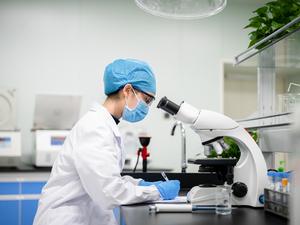Close to 40% of the world’s population relies on solid fuel sources for cooking, rather than electric or gas appliances, like microwaves, ovens and stoves, according to the World Health Organization (WHO).
And these fuel sources, like wood, charcoal, biomass and animal dung, don’t burn with clean flames, and combined with leaky stoves, contribute to a global epidemic of indoor air pollution — leading to almost 4 million premature deaths annually — per the same WHO report. Moreover, this practice compounds deforestation, contributes to greenhouse gas emissions, and disproportionately subjects women and children to concerns like gender-based violence as they spend hours navigating treacherous areas to gather this fuel, adds the World Bank.
Dr. Bruce Elliott-Litchfield, professor of 31 years at the University of Illinois at Urbana-Champaign (UIUC) Department of Agricultural and Biological Engineering, was first exposed -- and consequently "hooked onto" -- this problem while serving as a faculty advisor to UIUC's Engineers Without Borders student chapter. To address it, he considered the largest, free, inexhaustible, and most widely accessible renewable resource: the sun. In late 2014, he joined forces with PhD student Matthew Alonso to launch Sun Buckets (name for both product and company), which has created the world's first portable stored solar thermal energy source for energy intensive tasks, like cooking.
"While many others are tackling this problem, almost everyone is designing improved combustion stoves -- which still burn wood or charcoal or dung, and still create emissions. We chose to take a more dramatic approach," said Dr. Elliott-Litchfield in an interview with Chicago Inno.
Sun Buckets cook at temperatures close to those of flames, without any need for fire, fuel or releasing any emissions, per the startup. Dr. Elliott-Litchfield described a Sun Bucket as a cylindrical container made of recyclable aluminium, typically 12 inches in diameter and 6 inches deep, and with insulations on all sides except for a black heat transfer plate. For "charging" in heat collection mode, the vessel is placed at the focal point of a reflective parabolic dish, in the path of direct or indirect sunlight. Attaining temperatures of up to 350°C in about two hours, the Sun Bucket, with an outer shell that is cool to touch, is then removed from the dish and covered with an insulated lid. The heat stored can be used to cook a variety of foods, immediately or anytime in the next six hours, with the startup working to improve this feature even further.
Sun Buckets kicked off with some initial research funding from the University of Illinois' Institute for Sustainability, Energy and Environment, which it used for field trials in the Navajo Nation in Southwest United States. It has since won additional funding of $100,000 each from the Ocean Exchange Competition in Savannah, GA, and the Clean Energy Trust Challenge in Chicago. Completing the NSF I-Corps "Innovation Bootcamp" at the university, it just deployed its first shipment of 24 Sun Buckets to a rural community in Haiti, in partnership with a non-profit already active on the ground, Loving Shepherd Ministries.
"We recognize that nobody likes cooking in unfamiliar ways, so we want to work strategically with organizations familiar with our target user base," he said.
Sun Buckets has filed a patent for its product and process, and currently operates as a seven member team out of the product development space The Product Manufactory in Urbana. It is seeking expertise as it continues to drive down costs, improves its product and explores a Kickstarter campaign, SBIR funding from the NSF, and more pitch competitions.
The startup is also actively considering domestic market applications: The National Park Service and the Green Restaurant Association have both expressed interest in Sun Buckets as a sustainable way to cook. "Both domestic and international markets pose unique challenges, but we are hopeful that our technology is applicable in many different cooking situations," he concluded.
Edit: This article has been updated to reflect Matt Alonso's correct academic status at the university and that the Sun Bucket reaches temperatures of 350°C and not 350°F.








